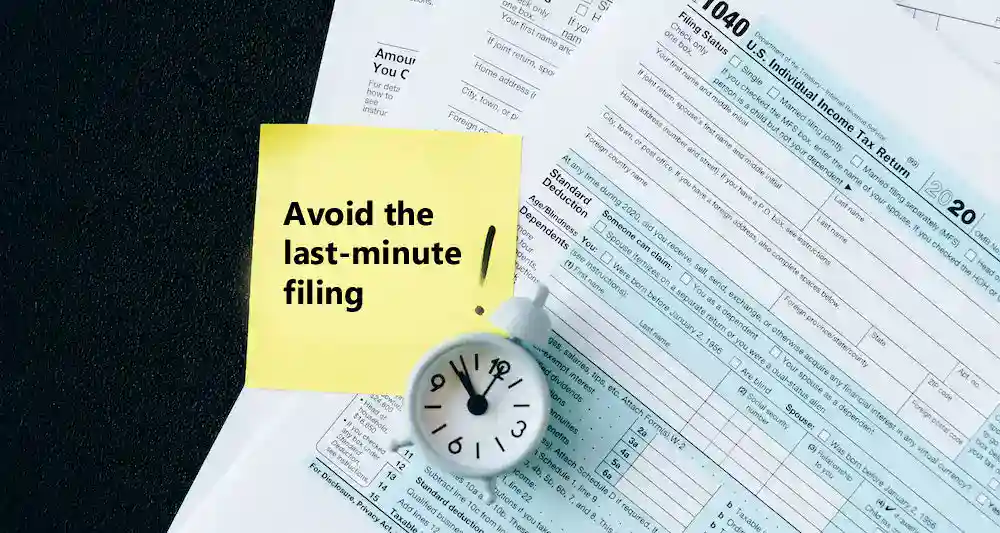ITR Filing Mistakes
Every taxpayer has the important financial obligation of filing their income tax return (ITR). Understanding the procedure and avoiding frequent mistakes will help make it less stressful, even though it could seem difficult. This thorough article will cover the seven most important ITR filing blunders to keep away from so that you may submit a perfect return and get the most out of your tax benefits. So let’s get started and learn some useful tips for managing your income tax return more effectively.
1. The First ITR Form Mistake: Match Your Income Sources
To prevent any errors and fines, the ITR form must be filled out correctly. Depending on your income source and kind, the Income Tax Department offers various forms. ITR forms like ITR-1 (Sahaj), ITR-2, ITR-3, and others are frequently used. Make sure the form you select is appropriate for your financial status and revenue sources.
2. Avoid the last-minute filing

It is never a good idea to wait until the last minute to file your returns. You run the danger of missing the deadline if the required paperwork or information is absent. Closer to the deadline, a high amount of users may cause problems on the income tax website.
You will also be fined if your income tax return is not submitted by the due date.
- A maximum 5,000 late fee
- A monthly interest penalty of 1% on any unpaid taxes
- A delay in getting refunds for extra taxes paid
3. Inaccurate Details: Verify Your Personal Information
Your ITR may contain inaccuracies if you provide inaccurate personal data, such as your name, address, and PAN (Permanent Account Number). Before submitting the return, double-check all the information you have provided. Incomplete information could cause your ITR to be rejected or processed slowly, forcing you to file the return again.
4. Ignoring Earnings from Other Sources: Be Sure to Report All Income

Taxpayers frequently make the error of failing to disclose income from a variety of sources, including interest from savings accounts, fixed deposits, or independent contracting. Even if the quantity of your income seems modest, it is crucial to accurately declare all of your earnings. Failure to do so may result in tax notices and penalties, which could harm your credit score.
5. Incorrect Bank Account Information: Ensure Smooth Refunds
When providing wrong bank account information to get tax returns, needless headaches and delays may result. Refunds are often handled by the Income Tax Department through Direct Credit or Electronic Clearing Service (ECS). In order to get reimbursements quickly and safely, double check your bank account number and IFSC code before submitting your ITR.
6. Not claiming TDS
TDS is regularly deducted from assessors’ paychecks without their knowledge. Tax withheld on interest accrued in bank savings accounts or interest on fixed deposits is the most frequent of them. Therefore, be sure that your revenue has not been reduced by TDS at all times. You can immediately do this by consulting your 26AS.
7. Missing the Deadline: File Your ITR on Time

To avoid penalties and interest on unpaid taxes, your ITR must be filed on time. The typical ITR filing date for individual taxpayers is July 31st. However, it’s imperative to annually check for any modifications to deadlines. Plan ahead and submit your ITR well in advance of the deadline to avoid last-minute issues.
